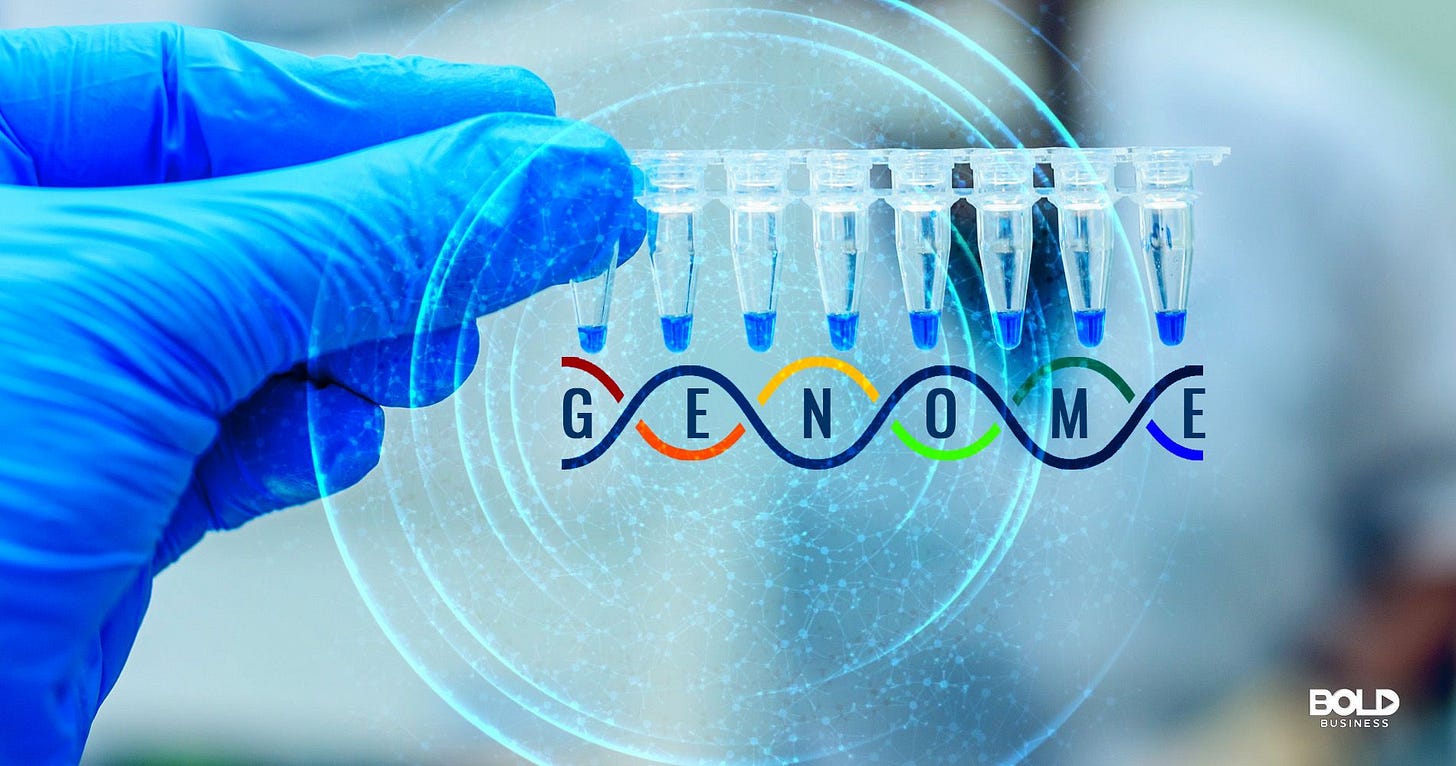Genomics and Precision Medicine
Written by Sai Koppada
In the past hundred years, medicine has gone through numerous advancements, each one bringing us closer to effective healthcare and a higher recovery rate. Our main source of medication developed from herbal tonics to basic medicines and has now developed into advanced pharmaceuticals that are much more effective. Now imagine if we could take it one step further.
With traditional medications, the drug is tested on an adequately large population and its safety is determined based on how the majority of the people react to it. This process doesn't examine how specific genetic coding can affect the expression of the drug or how effective each component of the drug in relation to an individual’s genetic makeup. However, with precision medicine, the medication is carefully tailored to fit the individuals' specific needs based on their genetic makeup (genomics), environment, and lifestyle. The main goal of precision medicine is to increase effectiveness, efficiency, and bioavailability.
When the first complete human genome was mapped out in 2003, it paved a path for healthcare professionals to understand genomics and the human body on a deeper level than ever before. Eventually, it gave scientists access to the genetic makeup of a human allowing them to test the reactivity of certain medications. It gave them the chance to explore how variations in genetics affected the way the medication was expressed. Using genomics and precision medicine, professionals can alter medications to maximize the bioavailability and efficiency, while limiting the side effects associated with the drug. This helps increase the amount of medicine that is absorbed by the body and helps administer medications that are actually beneficial to the individual.
This new development in medicine can alter the way doctors diagnose and treat conditions by significant amounts. The medication can be carefully tailored to fit the patients’ every need based on how their body reacts to different chemicals and substances. This type of medication can help treat conditions better by better targeting the specific cause of the condition in the body and eliminating its effects. This can decrease the side effects that can arise when a person reacts abnormally to a specific medication, and it ensures that the body doesn’t reject the medication.
Precision medicine can help better treat illnesses such as neurological, cardiovascular or even degenerative conditions. The effects and circumstances related to these conditions usually vary from person to person so having the ability to design medication that meets each individual's specific needs is very helpful in providing effective care. Advanced medicine can also help with diagnosis by identifying abnormalities early and with more accuracy.
In modern medicine, we have the technology to customize medication to treat common symptoms associated with illness. However, the technology isn’t advanced enough to treat specific conditions that are unique to an individual’s body. Precision technology takes medication one step further by utilizing a person’s genome to alter the components of a drug, allowing it to be more effective.
Overall, the inclusion of genomics in precision medicine can create medications that are tailored to an individual’s needs and are much for effective in treating and diagnosing a person.
Aronson, Samuel J., and Heidi L. Rehm. “Building the Foundation for Genomics in Precision Medicine.” Nature, vol. 526, no. 7573, Oct. 2015, pp. 336–342, https://doi.org/10.1038/nature15816.
Strianese, Oriana, et al. “Precision and Personalized Medicine: How Genomic Approach Improves the Management of Cardiovascular and Neurodegenerative Disease.” Genes, vol. 11, no. 7, 6 July 2020, www.ncbi.nlm.nih.gov/pmc/articles/PMC7397223/, https://doi.org/10.3390/genes11070747.
Written by Sai Koppada from MEDILOQUY


